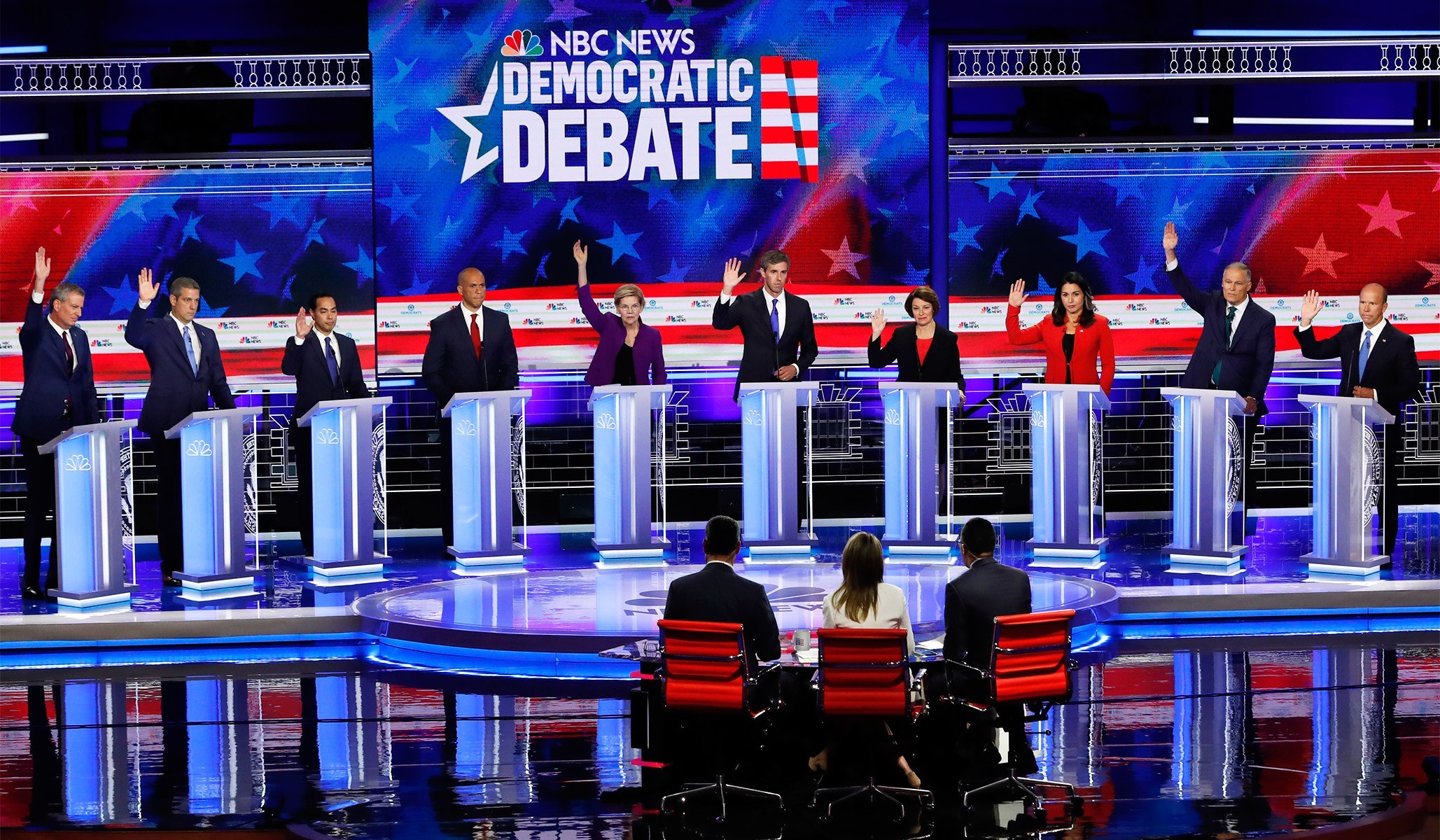By: Alan S. Blinder – wsj.com –
In my book “Hard Heads, Soft Hearts” (1987), I bemoaned that it was difficult to be both a Democrat and an economist. Democrats, I wrote, often advocated economic policies that were well-intentioned but softheaded. Yes, ends matter, but so do means.
Later, it became easy to be a Democrat and an economist because the Republican Party went nuts with supply-side economics, the notion that “Reagan proved that deficits don’t matter,” and the wacky idea that “trade wars are good, and easy to win.” The GOP continues to fail basic economics, but now I’m getting queasy again about the Democrats. So let me hold three truths to be self-evident.
Truth No. 1: You can improve and expand health-insurance coverage without going to a Medicare for All plan that bans private insurance. ObamaCare was a big initial step down that road, and we can easily go further—for example, by adding a public option. The U.S. may eventually get to single payer, but progressives need to understand the politics of trying to sell more than 150 million skeptical Americans on the idea that the government can replace their current health insurance with something better, fund it with higher taxes and save them money on net.
The current system is so larded with inefficiency that the Democrats’ dream may be possible, but will Americans believe it? Democrats who embrace Medicare for All are playing into the hands of Republicans—even as the GOP continues trying to repeal ObamaCare.
Truth No. 2: You can make great strides toward mitigating climate change without embracing the Green New Deal. I’ve been writing about the perils of climate change since Al Gore educated me during the Clinton administration. I’m also a huge admirer of the New Deal. So I think the name is terrific. But look inside H.Res. 109, the Green New Deal, and you’ll find a wish list that invites ridicule from the right. No, the bill wouldn’t ban cows or airplanes. But if progressives want to appeal to independents, Republicans who can’t stomach Donald Trump, or even centrist Democrats, the Green New Deal should be pared to items germane to climate change. I have a hard time understanding how “guaranteeing a job with a family-sustaining wage, adequate family and medical leave, paid vacations, and retirement security to all people of the United States”—all wonderful things—will reduce CO2 emissions.
For decades, economists of all political stripes have promoted a simple policy that could help combat climate change: taxing carbon emissions, hopefully with a levy that starts low and rises over time. That last feature would create powerful incentives for manufacturers, builders, public utilities and other businesses to start investing right away in low- or no-carbon technologies to reduce future costs. The Green New Deal aspires “to create millions of good, high-wage jobs in the United States.” Great. A gradually rising carbon tax is the best way to do that.
The carbon-tax idea isn’t partisan. Politicians who shrink from advocating higher taxes, as most do, can return the revenue to taxpayers by reducing other taxes—such as the regressive payroll tax. Or, as in the plan proposed by stalwart Republicans James Baker and George Shultz, return the money in the form of “carbon dividends.” Messrs. Baker and Shultz’s party will never endorse this idea, but an enterprising centrist Democrat could. Think of the slogan: Tax pollution instead of work.
Truth No. 3: International trade is good for the country, even when the U.S. has a large trade deficit. At the personal level, everyone understands the gains from trade intuitively. After all, we run persistent trade deficits with our grocery stores, gas stations, plumbers and many more businesses. Would it be smart to end these trade deficits by growing our own food, building our own refineries, and doing our own plumbing?
Now apply the same logic to states. I live in New Jersey. My guess is that the Garden State runs a chronic trade deficit with New York, where many New Jerseyites purchase show tickets, restaurant meals and much else. But who cares? I certainly wouldn’t want New Jersey to protect me from New York with tariffs (which, by the way, the Constitution prohibits in interstate commerce). The basic case for trade among nations is similar, as Adam Smith pointed out in the same year Thomas Jefferson was holding some other truths to be self-evident.
Democrats shouldn’t be competing over how hostile they can be toward trade. None are as bad as Mr. Trump, of course. But that’s a pretty low bar.
To see this article and subscribe to others by WSJ and Alan Blinder, click read more.
Source: Three Political Truths the Democrats Can’t Handle – WSJ
 Listen Online
Listen Online Watch Online
Watch Online Find a Station in Your Area
Find a Station in Your Area









 Listen Now
Listen Now Watch Online
Watch Online
